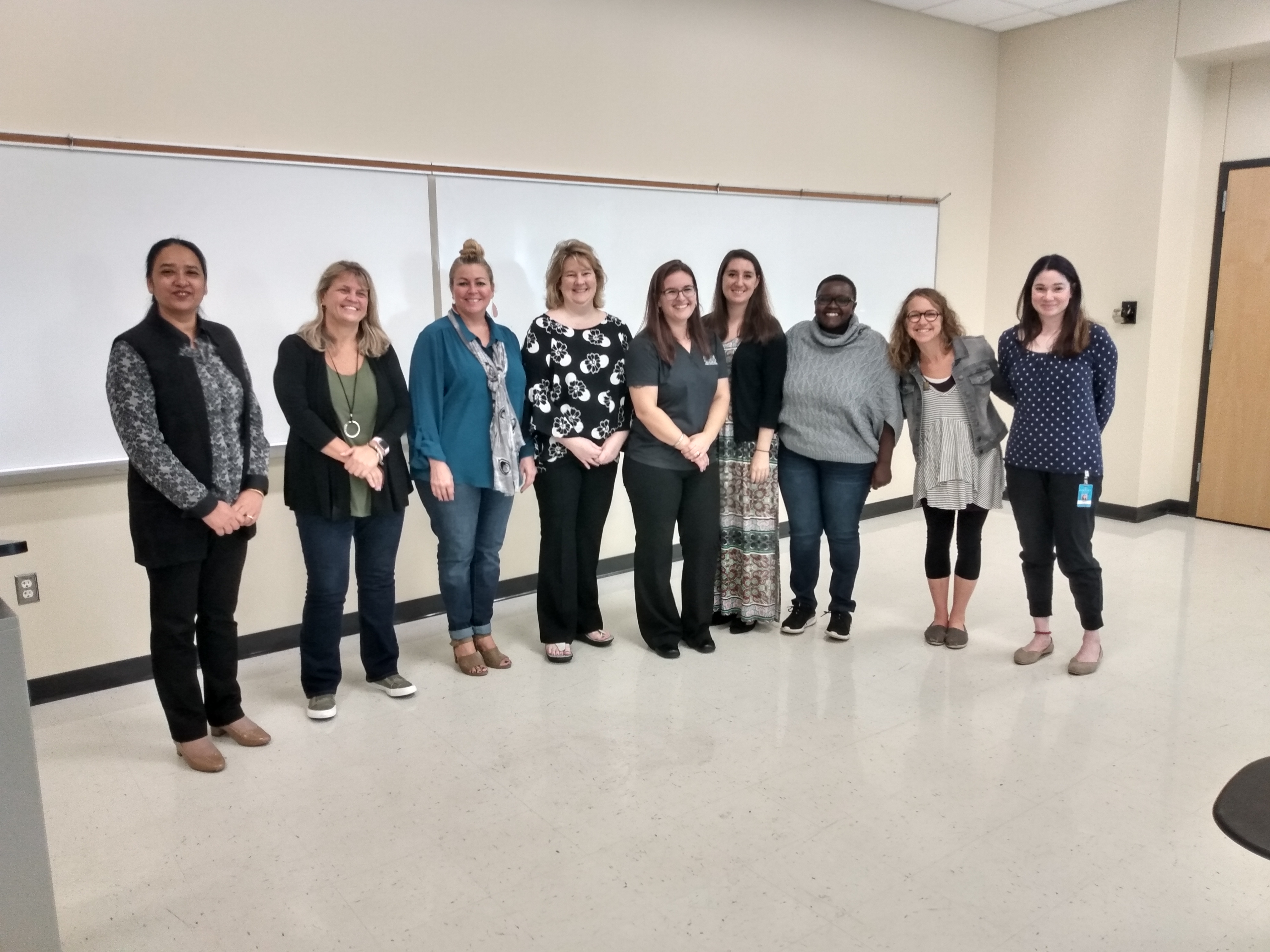PHD student BRIDGES the gap for refugee higher education

Kayte Thomas (middle) at the first meeting for the BRIDGES program at Wake Technical Community College with representatives from Church World Services, USCRI, Lutheran Services Carolinas (not pictured), Wake Tech faculty/staff/interns and Wake County Public Schools.
Before every bridge once laid a barrier. But when burdensome pathways are paved with recognition and research, solutions are reached, and lives are changed.
When given the opportunity to develop an innovation project for her Academic Leadership course, PHD student Kayte Thomas drew on her firsthand experience in refugee resettlement to create a program addressing a crucial obstacle for the refugee population: higher education.
Through her research surrounding refugee experiences, Thomas confirmed the existence of structural barriers preventing access to a college degree. She also discovered a common thread in the need for guidance between the high school and college transition.
“There was a demonstrated desire from the refugee community to have mentorship options as evidenced by qualitative interviews,” Thomas said.
This prompted her to create the BRIDGES program (Building Refugee Initiatives to Develop Goals for Educational Success) a peer mentorship program designed to connect college mentors with junior and senior high school students who are either refugees or children of refugees.
I am a product of a community college myself, and feel strongly that these settings can provide solid academic foundations and act as a catapult for educational success for many individuals
During their time together, college mentors will assist high school students in adjusting to the expectations of college, cover basics such as application and financial assistance, address cultural and classroom norms, and assist the student with identifying possible areas of study.
Thomas started the BRIDGES program at a local community college already engaged with the refugee community.
“I am a product of a community college myself, and feel strongly that these settings can provide solid academic foundations and act as a catapult for educational success for many individuals,” she said. “It seems like a natural fit for a program designed to acclimate refugee learners to the college experience.”
Studies indicate only one percent of refugee high school students will go on to complete higher education—a huge disparity compared to other demographics of students.
Thomas believes this unique cross-cultural exchange model will enhance the students’ skills in communication, leadership and applicable classroom learning while building strong collaboration within the community.
“It is my hope that over time the program will grow and refugee learners will increasingly engage in higher education as a result of the mentorship experience,” she said.
Studies indicate only one percent of refugee high school students will go on to complete higher education—a huge disparity compared to other demographics of students.
Thomas’ BRIDGES proposal was adopted by Wake Technical Community College in Raleigh, North Carolina, and will be available in spring 2020. The program is a replicable model on any campus, and Thomas is looking forward to providing the design content and consultation for other interested colleges and universities.
Gaining a deeper understanding of the college entrance process while becoming more acquainted with the expectations of the college setting are two of the many ways in which refugee students can “bridge” the gap and move toward fulfilling, lifelong careers.